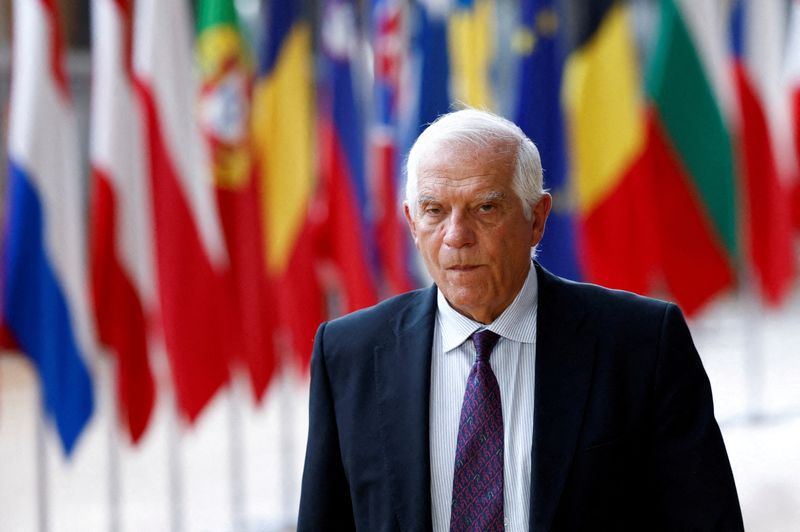BRUSSELS (Reuters) - The European Union should recognise China even more as a competitor and reduce its economic dependency, EU foreign policy chief Josep Borrell said on Monday, as the bloc looks to fine-tune relations with Beijing.
The European External Action Service, which Borrell heads, said in a five-page paper prepared for foreign ministers meeting in Luxembourg that the EU should pursue "realistic and robust engagement."
The bloc has regarded China since 2019 as a partner, tough economic competitor and systemic rival. Borrell told reporters after Monday's ministerial meeting that the role of competitor had become more central.
"The message from China now is one of competing," he said, as well as China's economic success and desire for influence in Africa, Asia, Latin America and elsewhere.
Europe should reduce its dependency by diversifying supply chains for technologies and critical raw materials and avoiding new vulnerabilities.
"Now we are talking about our dependency, vulnerability from Russian gas. We have to avoid creating new ones," he said.
EU leaders are set to discuss relations with China at a two-day summit from Thursday, starting a process officials describe as a "fine-tuning" of ties.
Monday's meeting came a day after a key policy speech by Chinese President Xi Jinping. Borrell said Xi had made a "very strong statement" about China's desire to have influence across the world.
The EU paper said Beijing was systematically promoting an "alternative vision of the world order," where economic and social development takes prominence over political and civil rights.
The bloc still believes it makes sense to engage with China as a partner in issues such as climate change.

EU diplomats say Brussels is concerned that Xi is setting China on an increasingly authoritarian path and is uneasy about Chinese partnership with Russia.
"The objective is not to change radically this policy but, obviously things have happened," one EU official said.